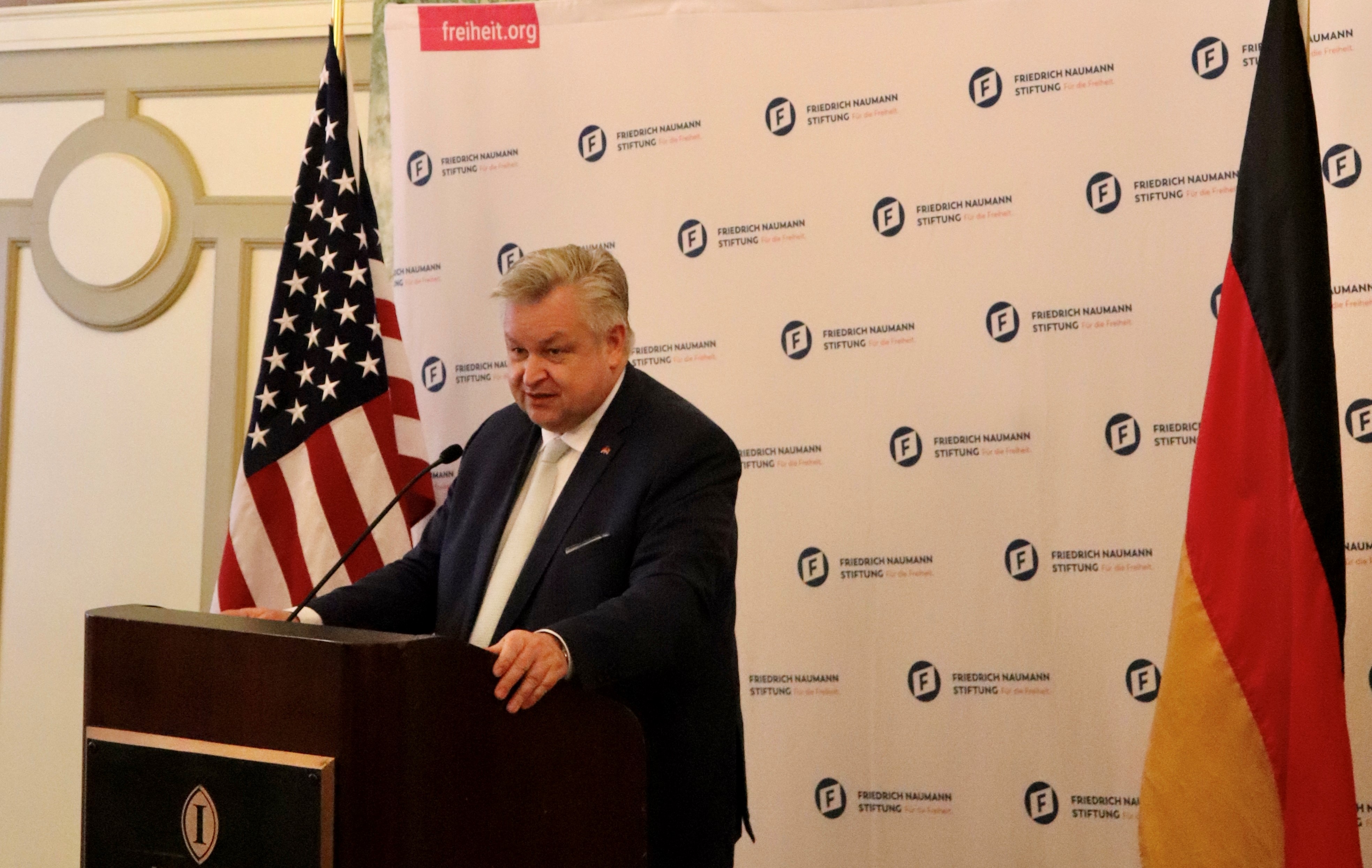Event Summary
“The NATO-Russia Standoff: What Does it Mean for the Future of European Security and the Transatlantic Relationship?”

FNF North America
On Monday, February 28, 2022, the Friedrich Naumann Foundation Regional Office North America was delighted to welcome Michael Link, Member of the German Federal Parliament, Spokesperson for European Affairs for the Free Democratic Party Parliamentary Group, and Member of the Board of Directors for FNF to Washington. Condemning Russia’s unprovoked invasion of Ukraine and standing in solidarity with the people of Ukraine, MP Link provided our network with an explanation of Germany’s position on the current crisis and the historical turning point in Germany’s foreign, defense and security policy that was ushered in in the last few days.
In just 72 hours, Germany overthrew decades-old policies in a major structural shift last week. First, new Chancellor Olaf Scholz announced that Germany would block the controversial Nord Stream 2 natural-gas pipeline from Russia, something he had initially been reluctant to do. Germany will now pipe less gas from Russia and build terminals to receive liquefied natural gas from other sources. Then on Saturday, Scholz indicated his readiness to ship arms to Ukraine as part of an ambitious defense package and lifted restrictions on third parties sending German weapons to conflict zones. Finally, in a groundbreaking speech during a special session in the German Bundestag, he most notably committed to spending more than 2 percent of his country’s gross domestic product (GDP) on the military – meeting a NATO defense-spending target that Berlin had long not hit – and announced setting aside €100 billion for a special defense budget for 2022.
Germany’s revolutionary foreign policy U-turn is hugely significant in that it abandons more than 30 years of Germany trying to balance its Western alliances with strong economic ties to Russia. Link stressed that Germany’s rapid course correct must be a long-lasting change of heart, not just a short-term change of mind. The catastrophic events in Ukraine have also exposed the great strengths of the transatlantic alliance and shown just how irreplaceable the transatlantic relationship is at a time when doubts linger about the long-term direction and dependability of post-Trump America. Link further emphasized how crucial it is for Germany and the United States to uphold this alliance - a beacon for peace, security, and prosperity for over 75 years - even during peaceful times.
During the Q&A session, Link also spoke a bit about the new coalition treaty signed by the Social Democrats, Greens and Free Democrats, in particular about what the text explicitly says on a variety of issues, like digitalization, human rights, climate change, and the energy transition – topics which all now have a serious China dimension. As for European Union enlargement, Link reiterated that the door should be open for states aspiring to join the EU, but that they need to make the necessary reforms to join.
